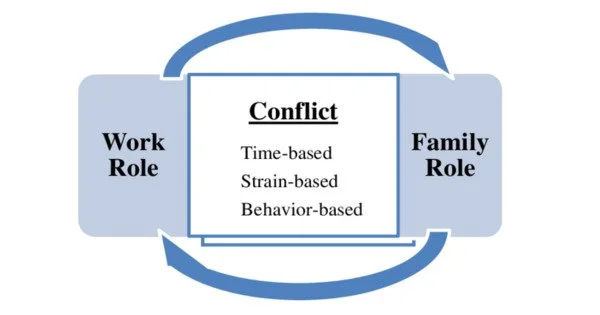Work-family conflict is the struggle that people go through when they see an inconsistency between the demands of their job and the demands of their home life. It arises when a person faces contradictory demands from both job and family obligations, making involvement in both tasks more challenging. This conflict occurs when the obligations and pressures of one domain (job or family) interfere with or make meeting the needs of the other domain difficult. This imbalance leads to conflict at the work-life nexus.
Work-family conflict has been linked to higher occupational burnout, workplace stress, poor health, and challenges with organizational commitment and job performance in some circumstances. It is critical for companies and people to comprehend the ramifications of work-family conflict.
There are two main types of work–family conflict:
- Work-to-family conflict (WFC): This happens when professional expectations or experiences interfere with a person’s capacity to fulfill family commitments. Working long hours, having rigid schedules, or dealing with high job demands, for example, might make it difficult for people to spend quality time with their families or perform domestic chores.
- Family-to-work conflict (FWC): This occurs when a person’s capacity to function efficiently at work is hampered by family-related responsibilities or concerns. For example, home duties such as childcare, eldercare, or personal concerns can flow over into the workplace, resulting in diminished focus, productivity, or stress.
Several factors contribute to work–family conflict, including:
- Long working hours: Excessive work time can reduce time available for family and personal activities.
- Job demands and pressure: High-pressure occupations or demanding duties may necessitate more time and energy spent at work, resulting in conflicts with family responsibilities.
- Lack of flexibility: Individuals may struggle to manage work and family commitments due to inflexible work schedules or the inability to work remotely.
- Gender roles and expectations: It can be exacerbated by societal expectations surrounding traditional gender roles, particularly when household chores are unequally distributed.
- Organizational culture: Workplace cultures that do not encourage work-life balance or do not have family-friendly rules can add to conflict.
















